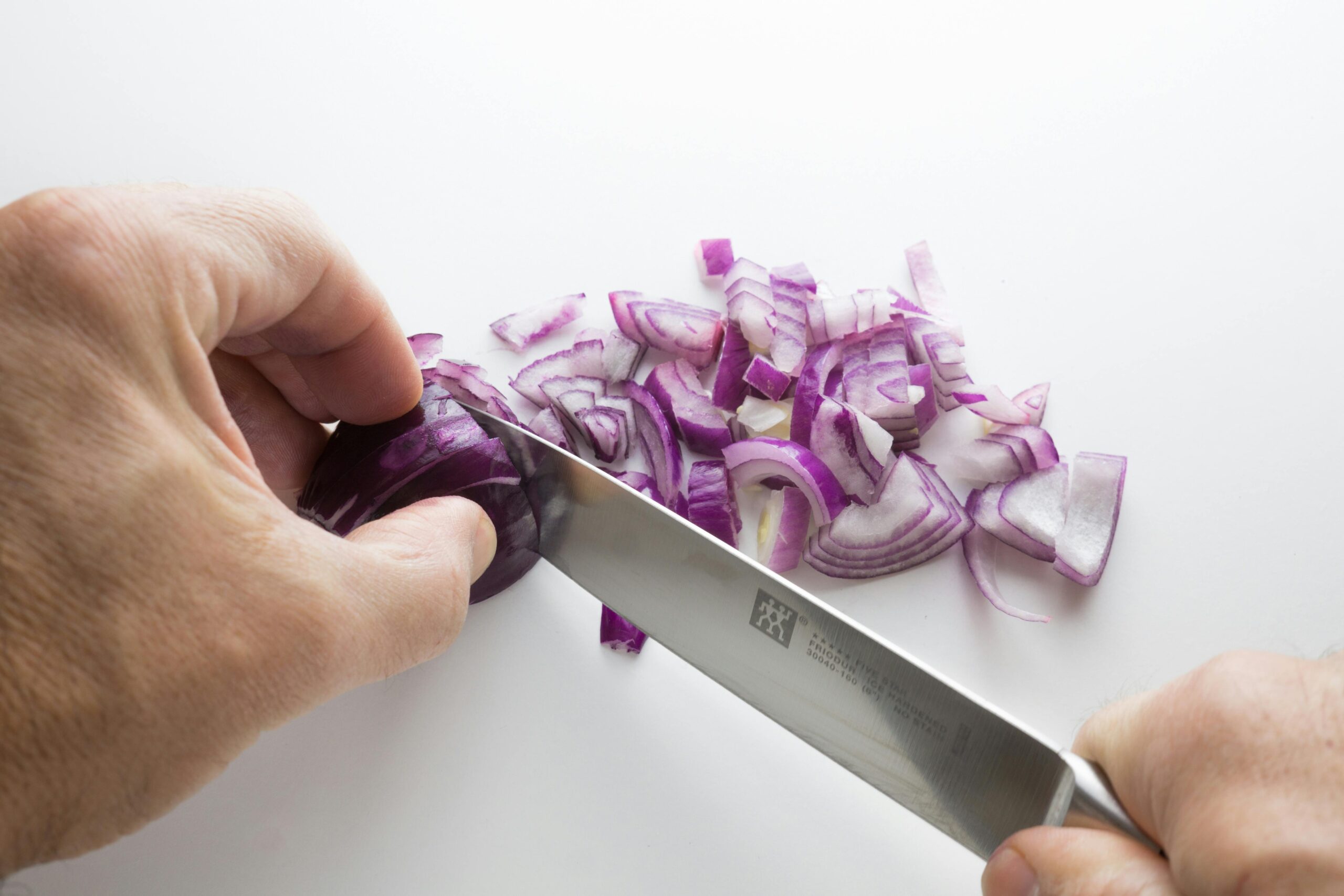Storing cut onions properly is crucial for maintaining their freshness and flavor while minimizing food waste. When onions are cut, they begin to lose moisture and can quickly spoil if not stored correctly. This guide provides practical tips on how to store cut onions effectively, ensuring they remain fresh for your cooking needs.
Why Properly Storing Cut Onions Matters
Cut onions can be a versatile ingredient in many dishes, but they have a limited shelf life. Proper storage helps preserve their texture and flavor, preventing spoilage and reducing the risk of food waste. Additionally, cut onions can emit strong odors that may affect other foods in your refrigerator. By following the right storage methods, you can keep onions fresh and mitigate odor transfer.
Best Ways to Store Cut Onions
There are several effective methods for storing cut onions. Each method has its advantages depending on how long you plan to keep them and how you intend to use them later.
Airtight Container
- Place the cut onion into a clean, airtight container.
- Ensure the lid is sealed tightly to prevent moisture loss and odor transfer.
- This method is ideal for short-term storage in the refrigerator.
Plastic Wrap
- Wrap the cut onion tightly in plastic wrap.
- Ensure there are no gaps to minimize exposure to air.
- This method is also suitable for short-term storage and can be done quickly.
Freezer Storage
- For long-term storage, consider freezing cut onions.
- Place cut onions in a freezer-safe bag, removing as much air as possible.
- Label the bag with the date to keep track of storage time.
Step-by-Step Guide: Storing Cut Onions in the Refrigerator
Storing cut onions in the refrigerator is straightforward and can be done in a few simple steps.
- Step 1: Prepare the onion by cutting it as needed for your recipe.
- Step 2: Choose your storage method (airtight container or plastic wrap).
- Step 3: If using an airtight container, place the onion inside and seal it tightly. If using plastic wrap, wrap the onion securely, ensuring no air can enter.
- Step 4: Store the container or wrapped onion in the vegetable crisper drawer of your refrigerator.
- Step 5: Use the stored onion within 7-10 days for optimal freshness.
The shelf life of cut onions varies based on storage methods:
- Refrigerator: Cut onions stored in an airtight container or wrapped in plastic can last 7-10 days.
- Freezer: When frozen, cut onions can last up to 6 months. However, they may lose some texture upon thawing.
Signs Your Cut Onion Has Gone Bad
Identifying spoilage in cut onions is essential to ensure food safety. Here are some signs that your cut onion has gone bad:
- Appearance: Look for browning or dark spots on the onion.
- Texture: If the onion feels slimy or excessively soft, it is no longer fresh.
- Odor: A strong, unpleasant smell indicates spoilage.
Yes, you can freeze cut onions for long-term storage. Freezing is an excellent option if you have leftover onions that you cannot use within a week. When frozen, onions maintain their flavor but may lose some crispness. To freeze cut onions effectively:
- Spread the cut onions in a single layer on a baking sheet and freeze them for a few hours.
- Once frozen, transfer them to a freezer-safe bag or container.
- Remove as much air as possible to prevent freezer burn.
Common Mistakes to Avoid When Storing Cut Onions
To maximize the freshness of cut onions, avoid these common storage mistakes:
- Not sealing containers tightly, which can lead to moisture loss and odor transfer.
- Storing cut onions near strong-smelling foods, which can cause flavor absorption.
- Failing to label frozen onions, making it difficult to track storage time.
Practical Tips to Prevent Odor Transfer in the Fridge
Cut onions can emit strong odors that may permeate other foods in your refrigerator. Here are some tips to minimize this:
- Store cut onions in a separate, airtight container to contain the smell.
- Keep them away from foods with delicate flavors, such as dairy products.
- Consider placing a small bowl of baking soda in the fridge to absorb odors.
Food Safety and Cross-Contamination Prevention
When handling cut onions, food safety is paramount. To prevent cross-contamination:
- Use separate cutting boards for onions and other foods, especially raw meats.
- Wash your hands and utensils thoroughly after handling cut onions.
- Store cut onions away from other foods to reduce the risk of contamination.
By following these practical storage tips, you can keep cut onions fresh for longer, reducing food waste and ensuring that your meals maintain their delicious flavor. With proper storage methods in place, you can enjoy the benefits of cut onions without the worry of spoilage.

